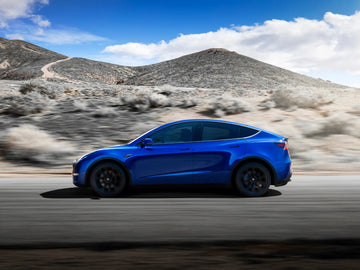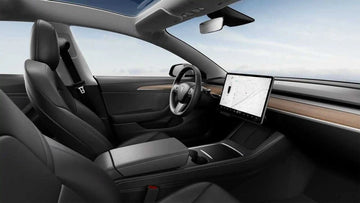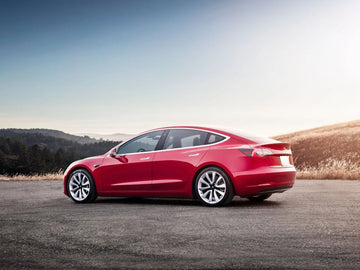For years, the automotive industry has held the belief that frequent DC fast charging can be detrimental to the longevity of your Tesla or any electric vehicle (EV) battery. However, a recent report from Recurrent, which meticulously analyzed data from over 12,500 Tesla vehicles in the United States, unequivocally reveals that there is little to no discernible difference in battery degradation between those who frequently and rarely engage in fast charging.
Recurrent's study delved into the realm of fast charging, focusing on thousands of Tesla vehicles in the US, to determine whether the sophisticated software and safety mechanisms in the Battery Management System (BMS) effectively safeguard the battery against harm. With Labor Day travel plans on the horizon, now is the opportune moment to separate fact from fiction when it comes to fast charging practices.
The Recurrent Study: An In-Depth Examination
Electric vehicle batteries rely on direct current (DC) power, while electricity from the grid (or a charging outlet) is supplied in alternating current (AC). During in-home charging (AC charging), the vehicle's onboard charger converts AC electricity into DC and subsequently delivers it to the battery. This process is constrained by the onboard charger's maximum speed, typically hovering around 11 kW. Consequently, AC charging generally adds 20-40 miles of range per hour, contingent on the specific vehicle.
In contrast, DC charging occurs when the conversion to DC energy takes place outside the vehicle, primarily at public charging stations and Tesla Superchargers. Since the electricity directly enters the car, bypassing the onboard converter, it can replenish the battery at a much faster rate. One major concern with fast charging is the possibility of overloading the battery with excessive energy too rapidly, potentially causing irreparable, long-term loss of range.
Key Discoveries: Minimal Impact on Battery Degradation
The pressing question often asked by EV owners is, "Will fast charging harm my EV battery?" In essence, occasional fast charging is perfectly acceptable. The study compared vehicles that engaged in fast charging at least 90% of the time with those that did so less than 10% of the time—those who predominantly relied on fast charging versus those who rarely did.
The findings unequivocally demonstrate that there is no statistically significant difference in range degradation between Teslas that fast charge more than 90% of the time and those that fast charge less than 10% of the time.
Preliminary analysis by the Recurrent team suggests that these study results could be applicable to various Tesla models and other EV manufacturers. In summary, the robust thermal, voltage, and battery management systems that EV manufacturers have invested in effectively shield their batteries from harm due to routine fast charging.
Tesla, in particular, excels in regulating power to and from the battery based on factors such as battery pack temperature, state of charge (charge percentage), and environmental conditions like external temperature.
When Fast Charging Poses Risks
Are there situations where fast charging is more likely to pose a risk? Indeed, there are instances when fast charging may have a more significant impact on your EV battery. It is advisable to avoid fast charging in extreme heat without first preconditioning your battery. Preconditioning involves the car's thermal management system pre-cooling or heating the battery to enable a higher charge rate.
Typically, the battery undergoes preconditioning when you set your car's navigation to a fast charging station. Similarly, precondition the battery before fast charging in extremely cold conditions. Driving for a short while before fast charging is often sufficient to warm up the battery or reach the fast charger using your car's navigation. Additionally, it's advisable to refrain from fast charging your EV at very low or very high states of charge, as battery resistance tends to be higher in such scenarios.
In conclusion, this study contributes to the expanding pool of knowledge surrounding EV battery longevity and charging practices. Nevertheless, it remains essential to exercise caution and be mindful of your battery's health, particularly in extreme temperature conditions.
Tesery, dedicated to providing quality products and services to Tesla owners. The most trusted Tesla accessories shop and supplier, the choice of over 28,000 Tesla owners!




















































